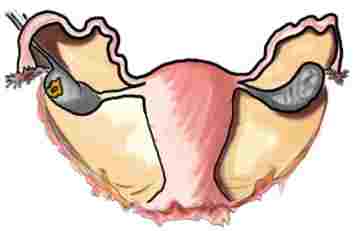Questions And Answers About Menopause And Climacteric
11,715 viewsMenopause is the woman’s last period. Menopause is the stage of life that occurs in the transition from the reproductive or fertile reproductive failure due to decreased sex hormone produced by the ovaries.

Ovarian failure is secondary to depletion of primordial follicles that constitute the genetic heritage of each woman. The decrease in hormone levels is a fact that happens to all women and begins around age 40. Some women may have a more pronounced signs and symptoms, but all come with menopause.
Phases of menopause
Menopause delimits the two phases of menopause, menopause pre-menopausal and postmenopausal women.
The average age of women at menopause is 51 years, ranging from 48 to 55 years. When it occurs in women under 40 is called premature menopause.
The decrease or lack of female sex hormones can affect various body sites, and determine signs and symptoms known by the name of menopausal or climacteric syndrome.
What do you feel in menopause?
The most common symptoms are:
Hot flushes or hot flashes, which cause a sudden reddening of the face and trunk, accompanied by a feeling of intense body heat and perspiration. May appear at any time and are often so unpleasant that they interfere with your day to day.
Urogenital changes caused by estrogen deficiency leading to atrophy of the vaginal epithelium, making the soft tissue to the point of bleeding. Vaginal atrophy causes narrowing and shortening, loss of elasticity and decrease secretions, causing vaginal dryness and discomfort during intercourse (dyspareunia).
Changes in vaginal flora facilitate the emergence of a flora that predisposes to nonspecific vaginitis. Other undesirable effects occur at the level of the urethra and bladder, causing difficulty emptying the same, involuntary loss of urine, causing the so-called urethral syndrome, characterized by recurrent episodes of increased urinary frequency and burning, plus the feeling of impending urination.
Mood swings, emotional symptoms such as anxiety, depression, fatigue, irritability, memory loss and insomnia due to hormonal changes that affect brain chemistry.
Modification of sexuality with decreased sexual desire (libido), which can be altered for various reasons, among them the lower vaginal lubrication.
Increased cardiovascular risk by decreasing estrogen levels.
Estrogen protects the heart and blood vessels against problems, avoiding the formation of clots that block blood vessels and maintaining levels of good cholesterol.
Osteoporosis, which is the decreased amount of bone mass, making bones more fragile and susceptible to fractures, especially at the level of the spine, femur, hip and wrist. Although some women may have no symptoms, a silent demonstration of hormone deficiency may be occurring, such as loss of bone that can lead to osteoporose.É in the first five years after menopause that bone loss occurs faster.
